
Unicorn Overlord Review
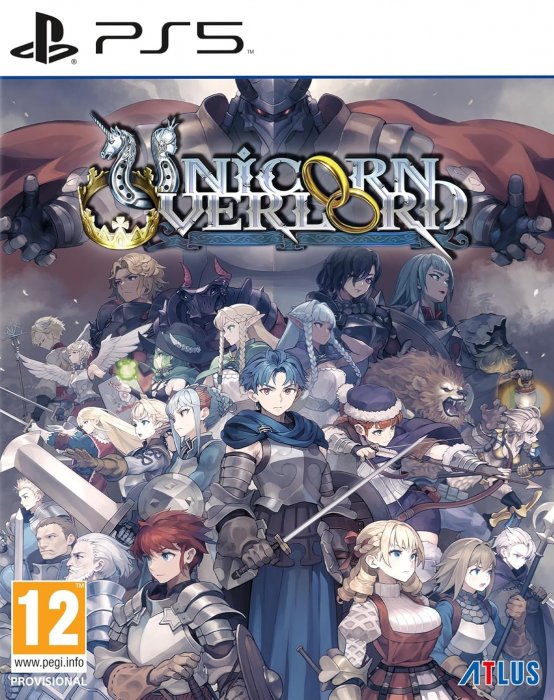
Pros
- Vast world packed with classes and character
- Vanillaware's bewitching fantasy visuals
- Rich score, excellent sound, and solid voicework
- Deep, satisfying, strategic action
- An eye for intricate details
Cons
- Traditional, predictable storytelling
- A tad easy for hardened strategists
- No PC port frustrating given genre/design
For centuries, fantasy has proved itself the most timeless, most watertight, and most adaptable genre in storytelling. Fantasy is malleable, consisting of worlds, people, creatures, and sciences unlimited by the boundaries of reality. As such, it is used by authors as a backdrop with which to create universes in which the rulebook is wiped clean - events, actions, and consequences only defined by the authors’ (and as such the audience’s) imagination.
This is why fantasy is arguably the single most utilized genre in video gaming. Fantasy, from the earliest of arcade games to a bevy of recent releases, is the ultimate blank canvas with which to create worlds of boundless adventure; occupied by wicked villains, gallant heroes, beautiful princesses, powerful sorcerers, warrior maidens, and a fair share of scaly, flying, or fire-breathing creatures. There are no set rules to fantasy, and thus game developers are not limited by strict concept. Escapism at its purest.
Back in the early ’90s - a time when fantasy adventure dominated the home console market - Japanese developer Quest launched the Ogre Battle series. Consisting of five mainline releases for the Super Famicom, Nintendo 64, and Game Boy platforms, Ogre Battle married sword-and-sorcery storytelling to strategic, tactical combat, where a battle was won or lost before swords had been crossed. This was a far cry from many console releases of the day which chose to give players direct, moment-to-moment control of their party.
Though it remained something of a cult curiosity, an eventual PlayStation port in 1996 would see Ogre Battle find a more globally established presence, leading to a keener interest in the strategy RPG at large. Today, Ogre Battle‘s legacy can be found in other popular fantasy series, such as Nintendo’s hugely successful and similarly historic Fire Emblem franchise.
With Unicorn Overlord, Osaka-based developer Vanillaware is looking to pay its own tribute to Ogre Battle‘s legacy. With acclaimed releases such as Dragon’s Crown, Odin Sphere, and 13 Sentinels tucked neatly under its belt, George Kamitani’s studio has long demonstrated its ability to produce titles that authentically replicate the excitement of The Classics, while also treating them to contemporary, distinctive and frequently, very horny, aesthetics. Unicorn Overlord has been in development for almost a decade, repeatedly put on hold while the studio completes other projects, but patience has paid off, as Vanillaware has another epic and captivating release.
To horse!
Knights, Damsels, Sacred Seals, Smarmy Villains. Fantasy doing its thing
Unicorn Overlord is a tactical RPG set against the backdrop of a continent under siege. Queen Ilenia of Corneia has fallen to a violent coup, headed up by her most decorated commander, General Valmore. Now established as the ruler of Corneia, the ruthless Valmore (now “Galerius”) sets about conquering all of Corneia’s surrounding countries, leading the charge in a 10-year war that ultimately sees the entire continent of Fevrith fall under his dictatorship and form “The Zenoirian Empire”. It is a time of loss, famine, and hopelessness for the people of Fevrith, with seemingly no light of redemption on the horizon.
However, prior to Corneia’s fall, Queen Ilenia had trusted her personal guard, Josef, to smuggle her young child out of the city before her leadership was overthrown. As such, Corneia’s rightful heir, Prince Alain, has spent the past decade in exile - training under Josef in the ways of combat, leadership, strategy, and courage. And though still green in the ways of war, time has forced their hand. Unprepared or otherwise, Alain must take up sword, gather scant allies, and return to Corneia; for there is a continent to liberate, a dictator to dispose of, and a throne to reclaim.
In Unicorn Overlord, the player guides Alain and their party as they dismantle the Zenoirian Empire piece by piece. Hopelessly outnumbered and outgunned, the young prince and their “Liberation Army” travels from country to country, liberating villages and towns, reestablishing rule, restructuring economy, and bringing both peace and hope to the people. As word of the Liberation Army’s exploits grows, more and more uniquely skilled warriors and mercenaries will join the ranks: from nothing-to-lose war victims to professional mercenaries, exiled nobility, and even turncoat members of Galerius’ own forces. Alain’s eventual goal is to grow the Liberation Army from a small, shaded movement into an almighty force, one that will ultimately stand up against Galerius and his increasingly otherworldly powers.
(1 of 2) The unmistakable Vanillaware style lends traditional beauty
The unmistakable Vanillaware style lends traditional beauty (left), and classic style to Fevrith and its inhabitants (right)
Video game reviews will rarely lead with the visuals. After all, any player worth their salt knows that gameplay is forever the true mark of a title’s merit. But with Vanillaware, it’s much more difficult not to focus on the aesthetics from the outset. This is due to the studio’s distinctive and immediately recognizable style. The studio’s high-fantasy vibe has always demanded attention from minute one, stamping identity on the studio’s releases from a mere glance and typically drawing in curious new acolytes. Unicorn Overlord is no different from the titles that have come before it, and the illustrative style that has made titles such as Odin Sphere and Dragon’s Crown so visually compelling is readily apparent throughout.
From grim, storm-torn battlefields, to deep, foreboding woods, sun-bleached deserts to ornate, abandoned cathedrals, Unicorn Overlord‘s picturesque settings capture the classical nature so distinct to the fantasy genre. The huge roster of characters are equally well-presented, with basic but emotive designs and some dynamic battle animations - bolstered by slick, vibrant visual effects. A welcome attention to detail is applied throughout Fevrith’s vast overworld, with kicking tides, misty swampland, footprints in the sand, and even cute firework celebrations as liberated towns return to their hustle and bustle.
Unicorn Overlord sounds just as good as it looks, with Basiscape’s rousing score accentuating scenes of sword-clashing action, while adventurous melodies accompany world traversal and cozy, firelit ditties are used for the party’s more personal encounters. Adding further dynamism to this aesthetic is an array of excellent sound effects, such as galloping hooves, echoing battle cries, clashing steel, and howling winds. The clash of swords, the twang of an archer’s bow, a clap of thunder - though Unicorn Overlord’s storybook style naturally lends itself to stasis, the fantastic sound design imbibes these visuals with real-world authenticity.
Vanillaware’s fondness for traditional fantasy fare is proudly demonstrated throughout Unicorn Overlord, and while the title is not quite as stunningly realized as Dragon’s Crown, its endearing design and excellent use of sound and score brings Fevrith and its inhabitants to life. Oh, and yes, Vanillaware’s quirky obsession with depicting delicious, stomach-rumbling dinners is present and correct. Of course.
There’s video game cuisine, then there’s Vanillaware video game cuisine
From the outset, Unicorn Overlord makes it clear that Prince Alain’s date with destiny is a marathon and not a sprint. This is an adventure that openly encourages the player to take the time to bury themselves within the intricacies of its world, characters, classes, and mechanics, rather than rapidly push through the story to reach its outcome. While Unicorn Overlord is most assuredly a story-driven RPG, the hook lies in the numbers, rather than the words. Emphasis is placed on opening up new territory, boosting economy, growing and managing classes, and synergizing skills among the army’s ranks. The time-sink is the point. Thus, Unicorn Overlord is built around the satisfaction of dismantling the evil empire piece by piece, rather than eagerly rushing the narrative to its conclusion.
This is a game where, early on, the story sees the heroes set out to rescue a kidnapped damsel from a terrible fate. But the act of reaching her may involve the liberation of multiple cities, the micro-management of troops, and a side-quest or two - totaling some eight hours of gameplay before ultimately securing her rescue. Unicorn Overlord embraces its own vast nature, offering the player missions and activities with which to while away the hours, rather than suggesting that they streamline the current task at hand…
…So I guess she’s just gonna have to wait a lil’ bit longer. Soz.
(1 of 2) Whether a mighty battle
Whether a mighty battle (left), or a minor skirmish, effective management of troops, time, and environment will see victory (right)
When it comes time for axe to meet eyeball, Unicorn Overlord‘s action tasks the player with managing multiple units of fighters against a localized army: defeating enemies, garrisoning checkpoints, utilizing assists, and capturing the spoils of war, all within a fixed time limit. The player freezes the action and then dictates their chosen units’ movements and actions on the battlefield at large, though the act of combat itself is not directly controlled.
Skirmishes play out in short animated sequences where fighters automatically utilize their array of skills to attack or defend against the enemy and/or support their own allies. Once one side falls, or both sides run out of Action Points, the skirmish is over and the player is returned to the overworld for the next stage of battle.
It is up to the player to competently manage all available classes, abilities, and environmental options in a fashion which will best counteract the enemy’s actions - capitalizing on their weaknesses while protecting the player’s own. This structure makes for smart and satisfying combat - with a healthy dose of endorphins delivered whenever a cleverly devised strategy leads to victory. As the continent opens up and further classes, abilities, hazards, and other wild cards are introduced, the player can fine-tune each individual character’s position, offensive & defensive priorities, and specific conditions for combat - while also utilizing powerful Valor Skills or teams assists to bolster your chances of victory. These options allow the more-dedicated strategist to conduct each individual skirmishes with near-scalpel precision.
And so, while the player may not have direct control over the hand-to-hand combat itself, the results of their careful planning and precise tactical management are no less enthralling. The battle cinematics are brief and enjoyable - mostly due to the splendid audio/visual design. An option to speed-up (or even skip) battle cinematics is available for those who simply wish to get to the chorus.
As Alain and Co. liberate Fevrith, word of the army’s deeds will bring forth further opportunities
When not ending lives and executing helpless commanders in the name of all that is holy, Alain and his party are able to traverse Fevrith’s five countries, en route to the inevitable showdown with Galerius. During these moments of exploration, resources can be gathered in order to replenish liberated towns; opening up stores, armories, and harbors while also furthering the army’s Good Guys reputation. As word of the Liberation Army’s antics grows, so does the amount of available units, as well the amount of fighters that can be assigned to the battlefields, and the overall quality of mercenaries willing to sign up to the cause.
Unicorn Overlord‘s roster of reprobates seemingly grows upon each and every action - with every new town, forest, mountain, and marsh bringing with it dagger-tossing bandits, gryphon-riding maidens, Ojou swordswomen, hammer-wielding meatslabs, dashing archers, and unsurprisingly underdressed witches. There’s a veritable bounty of charismatic classes looking to make Alain’s acquaintance, later including anthropomorphic knights, reality-bending sorcerers, limp-haired Goth assassins, and perhaps The Biggest Lady Ever. All of these deathdealers are skilled, powerful and, (subconsciously or overtly), trembling with sexual tension. By the halfway point of Unicorn Overlord‘s lengthy campaign, Prince Alain’s Liberation Army has grown from a clumsy bunch of regal misfits to perhaps the queerest and horniest battalion in existence. Sign me the fuck up.
Oh, and speaking of love blooming, even on the battlefield, characters that spend extended time in close proximity together, (whether on the battlefield or over a nice dinner), build “Rapport”. This eventually leads to boosted stats, unlockable conversations, and potential courtship - regardless of gender.
Hands off siblings Travis and Berengaria though. They’re mine. Yes, both.
(1 of 2) The intricate management of units, skills, and personalities
The intricate management of units, skills, and personalities (left), will lead your party to victory… and perhaps more (right)
As previously noted, Unicorn Overlord chooses to spotlight its intricacies - the dice rolls, the numbers, the tactical elements - over narrative progression. And this, unfortunately, leads to one of the title’s most notable negatives. While Alain’s journey will see them travel across an entire continent - exploring new lands and meeting a menagerie of unique characters - Unicorn Overlord’s storytelling is… well… “traditional” at best. That is to say, there is a comfortable, recognizable nature to its whimsical tale of a lost prince, a fair maiden, an evil ruler, a wicked sorcerer, and the obligatory battle of Good vs. Evil. But it is all undeniably vanilla. Most everyone that the player meets fits cleanly and snugly into The Big Book of RPG Tropes, while the story itself is both formulaic and predictable.
Unicorn Overlord‘s take on the familiar “Rightful Prince Returns” legend is told in mechanical fashion. While it’s nice to walk a familiar path of Saturday Morning fantasy fiction, the huge roster, gorgeous visuals, and charged score depict greater narrative potential than what is ultimately delivered. Additionally, while there are some really fun characters here, the more players you allow on stage, the thinner their individual impact. And so, inevitably, some of our heroes and villains fall by the wayside in double-quick fashion. (Not Melisandre though, she’s rad.)
This isn’t to say that Unicorn Overlord‘s story is bad - I cared about Alain, their friends, and their journey - it is just to say that it’s super conventional, choosing to follow the standard beats expected of the genre. Given the quality Vanillaware has afforded the aesthetic, the characters, and the gameplay, it’s a shame that the narrative fails to meet the bar set by these elements.
But then, you can marry Travis or Berengaria, so, who’s to say?
(1 of 2) Dragons & Gryphons, Thieves & Marquesses,
Dragons & Gryphons, Thieves & Marquesses, (left), Clerics & Witches: Unicorn Overlord is packed with characters and classes to explore (right)
Yep, it’s only March, and yet another 100+ hour “Must Play” release is jockeying for position at the top of your backlog.
In Unicorn Overlord, Vanillaware has crafted a deep, compelling, and brilliantly executed tactical RPG that is far more focused on its systemic elements than its dramatic turns. The latter remains enjoyable - thanks to some endearing characters and great voice acting - but the core entertainment is firmly derived from its strategic edge. Dressed up in lavish style and underpinned by great sound design, Unicorn Overlord wants to bury the player’s time beneath its intricacies: be that crafting an army of finely-tuned killing machines; undertaking the liberation of an entire continent of citizens; any number of mining, treasure hunting, coliseum conquering, or chicken-chasing exploits; or simply searching far and wide for the finest cuisine in Fevrith.
And, much like fine cuisine, Unicorn Overlord is to be savored rather than scoffed. Look beyond the simplicity of its story and get bogged down in the finer points of its micro-management. Despite its strategy-heavy overtones, Unicorn Overlord remains approachable for newcomers and is a perfect jumping-off point for any typical RPG fan who fancies trying out something a little different. That said, strategy aficionados should note this isn’t Europa Universalis, and I would strongly recommend that genre veterans pick one of the harder difficulty settings right off the bat.
Vanillaware has once again proven its adeptness at capturing the key flavors of classical gaming, before invigorating those flavors with its own distinctive, captivating style. While the formulaic story will win no awards, the satisfaction derived from its intricate and absorbing mechanics sees Unicorn Overlord march confidently to victory.
A new time sink awaits. Join the Liberation, comrade.
This review is based on a retail build of the game provided by the publisher.
Viva la Liberacion
Vanillaware has once again proven its adeptness at capturing the key flavors of classical gaming, before invigorating those flavors with its own distinctive, captivating style. While the formulaic story will win no awards, the satisfaction derived from its absorbing mechanics sees Unicorn Overlord march confidently to victory. A new time sink awaits. Join the Liberation, comrade.
Gameplay:
Sound:
Graphics:
Story:
Value Rating:

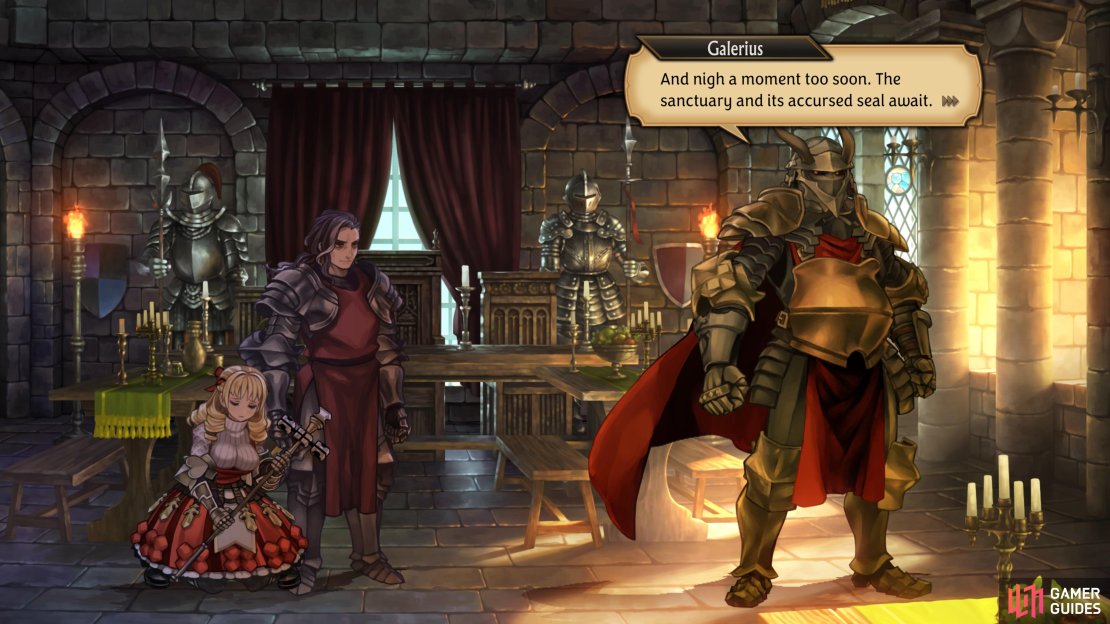




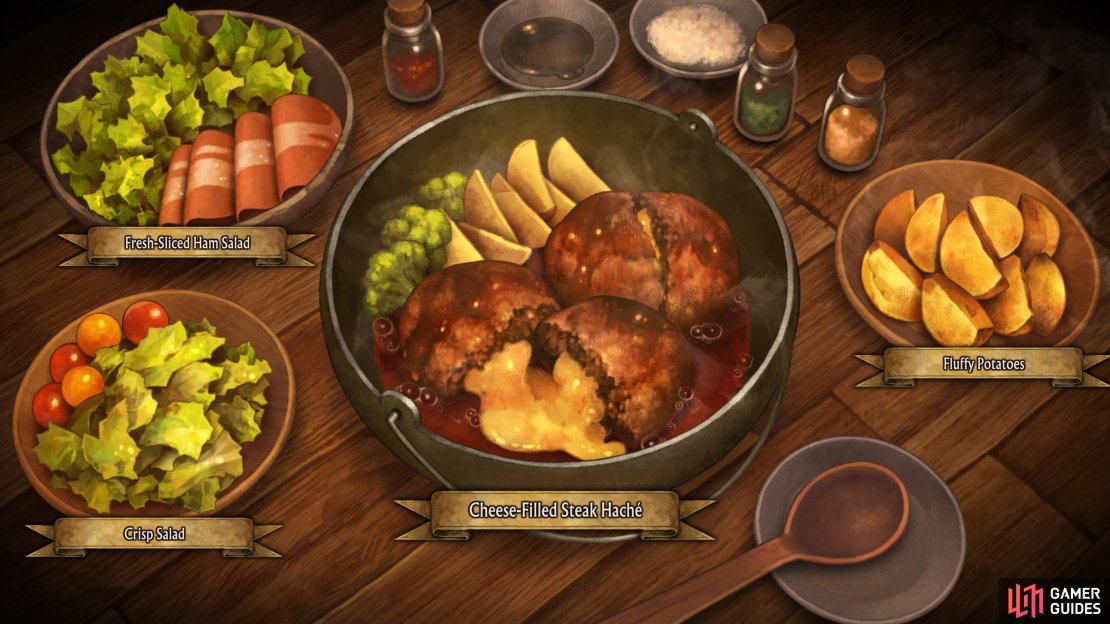
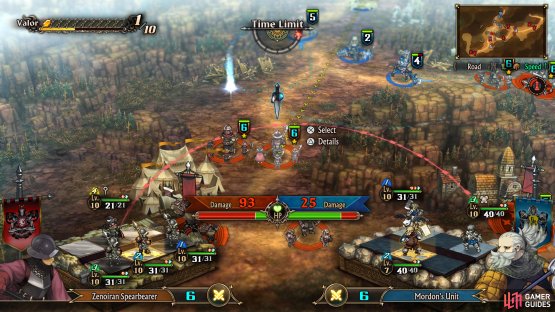



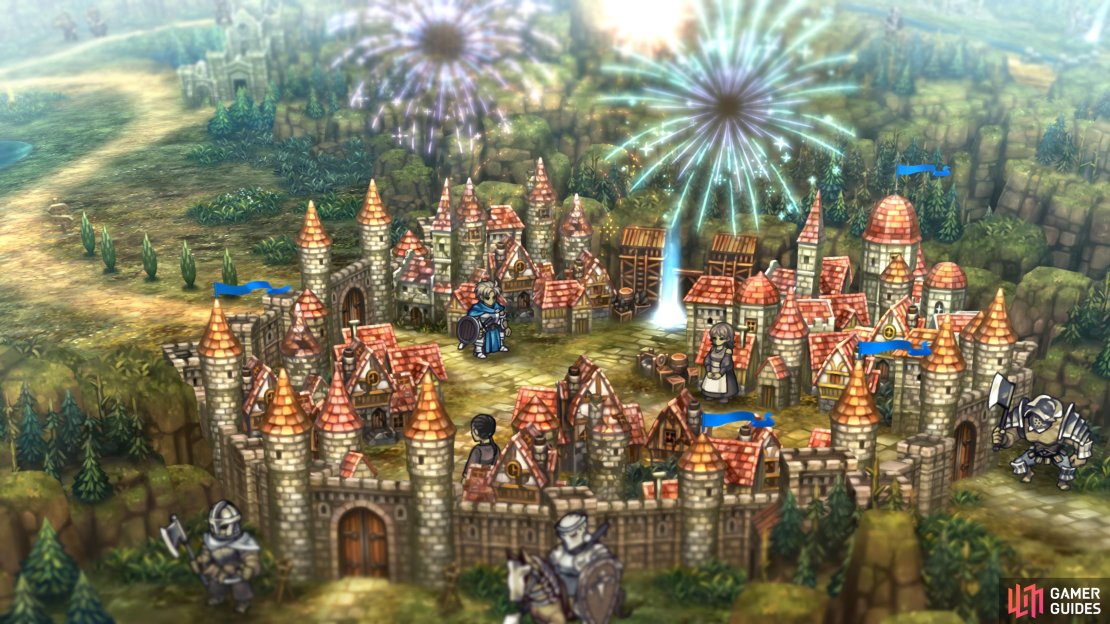
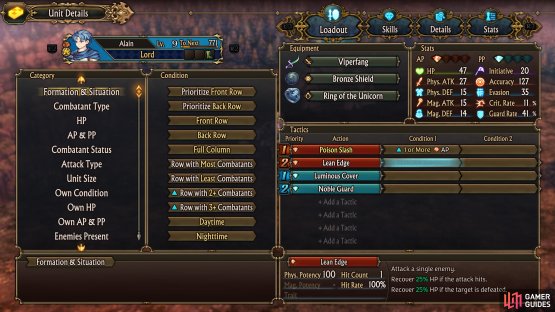



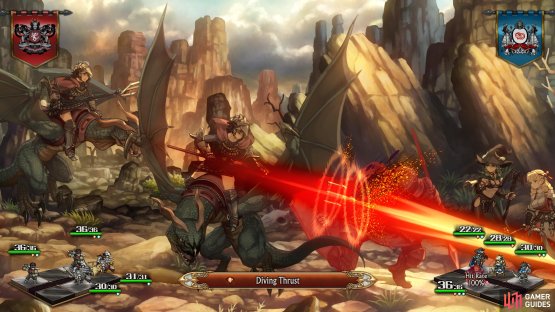








Nice write up there, such a pretty looking game. Definitely going on the wish list.
I have so much to play already... but I'll probably end up picking this up...
Great review as always.
This sounds really appetizing. I'm waiting for a good deal on it but I'll be adding that to the backlog eventually.
I'm hoping it comes to PC after a year or two so I can check it out then, I'm not really into the idea of playing it on Switch or Ps4.
I'm loving it so far. Just need more time between this and Infinite Wealth.
Awesome review as always, Chris! I love that there’s a demo for this too. Vannillaware is such a reliable dev and I’ve always loved their stuff. This will have to be a Wait for me tho…assuming Dogma 2 doesn’t shit the bed and get bad reviews lol.